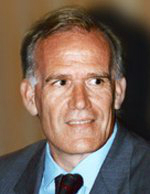대졸 절반 무직·학위 불필요 직종 근무
 지난 70년 동안 미국의 고등교육은 출세와 풍부한 경험 공유의 지름길로 인식되었다. 미국 청년들은 4년 동안 고전의 핵심을 공통과목으로 수강했고 세상을 객관적으로 보는 법을 배우며 정보에 입각한 주장을 논리적으로 전개하는 구체적인 지식을 습득했다.
지난 70년 동안 미국의 고등교육은 출세와 풍부한 경험 공유의 지름길로 인식되었다. 미국 청년들은 4년 동안 고전의 핵심을 공통과목으로 수강했고 세상을 객관적으로 보는 법을 배우며 정보에 입각한 주장을 논리적으로 전개하는 구체적인 지식을 습득했다.
그 결과 더욱 숙련된 고급 인력과 유능한 민주 시민이 양성되었다. 그런 이상은 미국을 대표하는 세계 굴지의 몇몇 명문대학교에서 여전히 진실로 통할지 모르나 다른 수많은 대학들은 그런 모델에서 벗어나 크게 잘못된 길로 가고 있다. 낡은 대학교 운영방식은 시대에 크게 뒤처졌거나 대학 본래의 사명과 상반되고 있다.
사실상 종신직을 보장받는 정교수 제도는 대학의 언론자유를 보호하는 것이 목적이었다. 그런데 어째서 대학의 이데올로기가 다양하기보다는 단조로워져 정치적으로 인기 없는 각종 견해에 대해 개방적인 태도나 관용이 상아탑에서 사라진 이유는 무엇일까.
미국의 대학교 교수채용제도는 융통성이 극도로 줄어들어 무능한 종신직 정교수를 해고하지 못해 유능한 인재를 교수로 새로 임용할 수가 없다.
과거 대학교는 민간기업에 공정성 및 평등성이 부족하다고 주장하며 비판하기 일쑤였다. 그러나 현대의 대학은 민간기업보다 훨씬 착취적이다. 귀족적인 종신 정교수들이 받는 급료에 비하면 동일한 학위를 가지고 같은 내용을 강의하는 시간제 강사들이 받는 급료는 형편없이 낮다.
세계 최대 규모의 대학교 체제인 캘리포니아 주립 대학교 체제의 경우 막대한 학업지원에도 불구하고 4년 만에 졸업하는 학생의 비율은 20% 미만이다. 6년 만에 졸업하는 비율은 50% 미만이다.
과거에 대학교의 행정책임자는 최고위 교수들 가운데서 임명되는데 이들은 돌아가면서 강의 및 연구와 대학 운영을 담당했다. 지금은 행정책임자가 강의를 하는 경우가 드물다. 대신 행정 책임자들은 고임금을 받는 전문 행정가 집단을 이루는데 이 집단이 기하급수적으로 커지고 있다. 캘리포니아 주립 대학교 체제의 경우 행정 전문가가 정교수보다 수가 많다.
과거에 대학 입학은, 정부가 보장한 혜택의 특권이 아니라 고등학교에서 열심히 공부하여 능력을 증명한 대가로 받는 보수로 여겨졌다. 지금 입학생 가운데 절반 이상이 대학에 들어간 후 수학과 영어의 보충학습을 받는다. 6년의 재학기간과 수억 달러의 학업 지원에도 불구하고 그와 비슷한 비율의 학생들이 졸업을 못하는 까닭이 이로써 설명될 수 있는지도 모른다.
전통적인 읽기와 쓰기 능력을 갖추지 못한 채 많은 빚을 지고 있는 20대 대학생이 다수 존재하는 사실은 미국에서 비교적 새로운 현상이다. 거대한 규모의 대학이란 산업의 마지막 버팀목 노릇을 하는 대학졸업자들 가운데 절반 이상은 취직을 못했거나 학사학위가 불필요한 직종에서 일한다. 25세 이하 미국 청년의 대략 4분의 1이 무직자이거나 구직자다.
미국의 명문대학교 몇 개를 제외하면 오늘의 미국 대학교 상황은 악화일로의 실패사례 그 자체다. 상아탑 밖에서는 이런 사실이 당연시되고 있으나, 개혁이 시작되어야 할 상아탑 내부에서는 단호히 부인당한다.
장차 대학교에 무엇을 기대할 수 있을까. 최고급 강사들의 녹음 강의를 제공하고 조교들의 개별 지도가 가능하며 수강료는 대학 등록금보다 훨씬 저렴한 온라인 강의가 더욱 증가하여 학생들을 대학 캠퍼스에서 빼앗아갈 것이다. 전문대학들이 시장에서 팔리는 기술을 훨씬 싸고 능률적으로 가르칠 것이다. 상아탑 안에서는 강의 및 연구 의무의 이행을 바탕으로 하는 정기적인 계약 경신 제도가 종신 정교수 제도를 대체할 것이다. 사회적 인식도 바뀌어서, 빚만 지고 학위도 따지 못한 20대 중반의 사회과학 전공 대졸자보다, 학위는 없으나 빚이 없고 더 높은 급료를 받는 전기공이나 배관공 혹은 컴퓨터 프로그래머가 더 존중받게 될 것이다.
빅터 데이비스 핸슨 美 후버연구소 역사학자
워싱턴타임스·정리=오성환 외신전문위원
By Victor Davis Hanson
For the past 70 years, American higher education was assumed to be the pathway to upward mobility and a rich shared-learning experience.
Young Americans for four years took a common core of classes, learned to look at the world dispassionately and gained the concrete knowledge to make informed arguments logically.
The result was a more skilled workforce and a competent democratic citizenry. That ideal may still be true at our flagship universities, with their enormous endowments and stellar world rankings. Yet most everywhere else, something went terribly wrong with that model. Almost all the old campus protocols are now tragically outdated or antithetical to their original mission.
Tenure virtual lifelong job security for full-time faculty after six years was supposed to protect free speech on campus. How, then, did campus ideology become more monotonous than diverse, more intolerant of politically unpopular views than open-minded.
Universities have so little job flexibility that campuses cannot fire the incompetent tenured or hire full-time, competent newcomers.
The university is often a critic of private enterprise for its supposed absence of fairness and equality. The contemporary campus, however, is far more exploitative. It pays part-time faculty with the same degrees far less for the same work than it pays an aristocratic class of fully tenured professors.
The four-year campus experience is simply vanishing. At the California State University system, the largest university complex in the world, well under 20 percent of students graduate in four years despite massive student aid. Less than half graduate in six years.
Administrators used to come from among top faculty, who rotated a few years from teaching and scholarship to do the unenviable nuts-and-bolts work of running the university. Now, administrators rarely, if ever, teach. Instead, they became part of a high-paid, careerist professional caste one that has grown exponentially. In the California State University system, their numbers have exploded in recent years a 221 percent increase from 1975 to 2008. There are now more administrators in that system than full-time faculty.
College acceptance was supposed to be a reward for hard work and proven excellence in high school, not a guaranteed entitlement of open admission. Yet more than half of incoming first-year students require remediation in math and English during, rather than before attending, college. That may explain why six years and hundreds of million dollars later, about the same number fail to graduate.
The idea of deeply indebted college students in their 20s without degrees or even traditional reading and writing skills is something relatively new in America. Yet aggregate student debt has reached a staggering $1 trillion. More than half of recent college graduates who ultimately support the huge college industry are either unemployed or working in jobs that don’t require bachelor’s degrees. About a quarter of those under 25 are jobless and still seeking employment.
Apart from our elite private schools, the picture of our postmodern campus that emerges is one of increasing failure ? a perception hotly denied on campus but matter-of-factly accepted off campus, where most of the reforms will have to originate.
What might we expect in the future?
Even more online courses will entice students away from campuses through taped lectures from top teachers, together with interactive follow-ups from teaching assistants all at a fraction of current tuition costs.
Technical schools that dispense with therapeutic, hyphenated “studies” courses will offer students marketable skills far more cheaply and efficiently. Periodic teaching contracts, predicated on meeting teaching and research obligations, will probably replace lifelong tenure.
Public attitudes will also probably change. The indebted social science major in his mid-20s with or without a diploma will not enjoy the old cachet accorded a college-educated elite at least in comparison with the debt-free, fully employed and higher-paid electrician, plumber or skilled computer programmer without a college degree.
Real skills will matter more than mere college attendance or a brand. New competency in national tests in math, science and English will be considered by employers to be a far better barometer of past achievement and future potential than the mere possession of a now-suspect university transcript.
As in any revolution, much good will be lost along with the bad. The traditional university used to offer a holistic four-year experience for motivated and qualified students in a landscape of shared inquiry and tolerance. The Internet and for-profit trade schools can never replace that unique intellectual and social landscape.
Yet, because professors of the traditional arts and sciences could not or would not effectively defend their disciplines or the classical university system, agenda-driven politicians, partisan ideologues and careerist technocrats absorbed them.
The college experience morphed into a costly sort of prolonged adolescence, a political arena and a social laboratory something quite different from a serious place to acquire both practical and humanistic knowledge.
No wonder that it is now financially unsustainable and going the way of the dinosaurs.
Copyright ⓒ 세계일보. 무단 전재 및 재배포 금지
![[설왕설래] 한·일 여권 없는 왕래](http://img.segye.com/content/image/2025/12/18/128/20251218518473.jpg
)
![[기자가만난세상] ‘강제 노역’ 서술 빠진 사도광산](http://img.segye.com/content/image/2025/12/18/128/20251218518441.jpg
)
![[세계와우리] 사라진 비핵화, 자강만이 살길이다](http://img.segye.com/content/image/2025/12/18/128/20251218518464.jpg
)
![[기후의 미래] 사라져야 새로워진다](http://img.segye.com/content/image/2025/12/18/128/20251218518446.jpg
)








